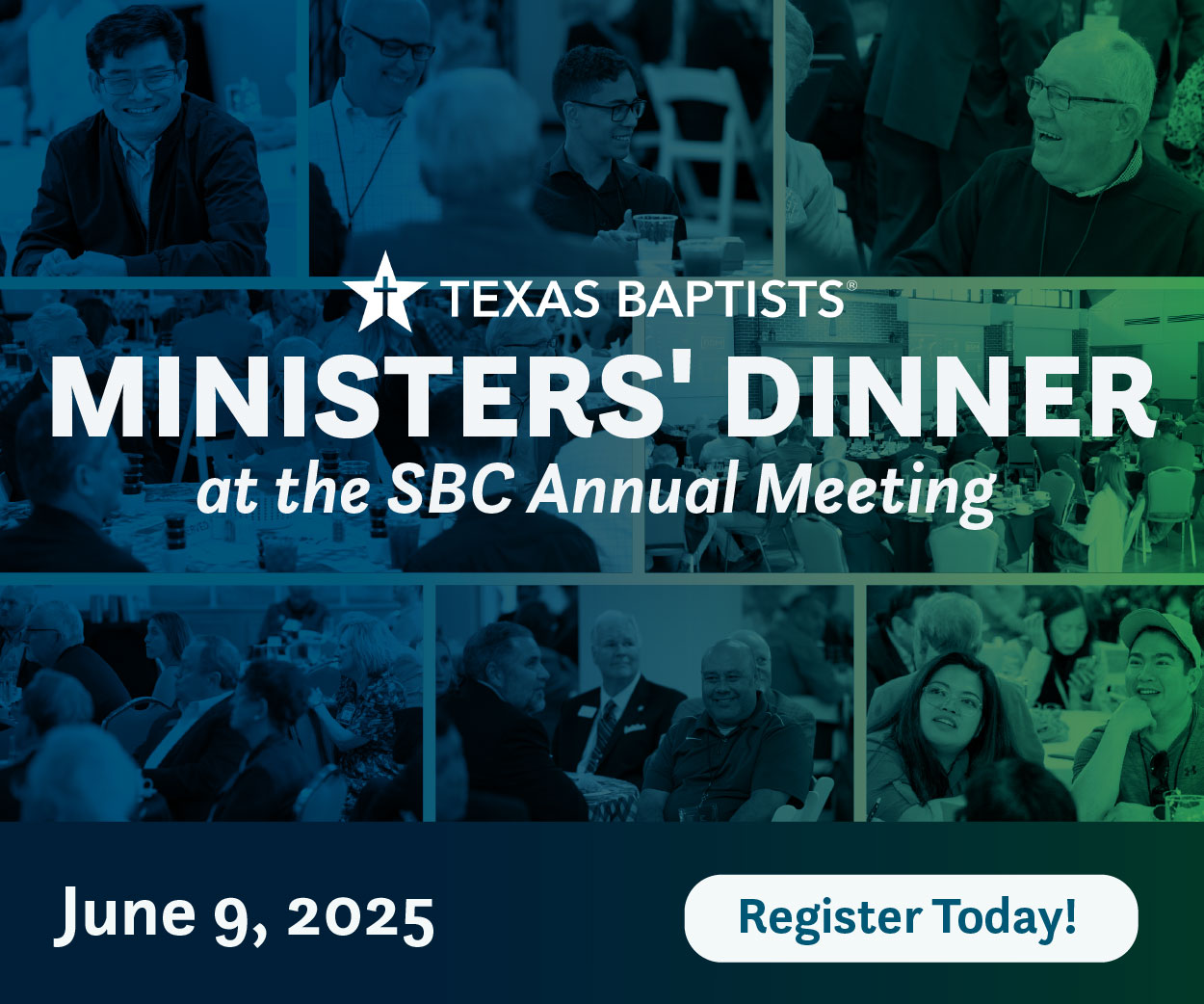Posted: 7/12/06
BaptistWay Bible Series for July 23
Living with single-minded purpose
• 2 Timothy 2:1-17, 20-13
By Joseph Matos
Dallas Baptist University, Dallas
To watch an athlete face a stressful situation is a sight to behold. It does not matter the sport. The pressure is on; all eyes are watching; perhaps a championship is on the line. Some athletes have an uncanny ability to tune out all the distractions. They remain calm and complete their task without succumbing to those distractions. Everything they have been taught comes second nature to accomplish the goal. To be successful, the athlete must know what to focus on and what to discard.
This is even more true for the believer. The Christian life requires focus. The goal is Christlikeness. The distractions are many. The opposition is great.
In chapter 1, Paul encouraged Timothy to fuel the flame of his gift in ministry. Now Paul outlines what is required to stay the course. This chapter is full of positive and negative imperatives. There are actions to follow and activities to avoid. Even some of Paul’s illustrations (soldier, athlete and farmer) have implications about imperatives.
Timothy is to focus on one thing—the gospel of Jesus Christ (2:8). Any ancillary discussion leads to disputes, quarrels and ungodliness. In his task at Ephesus, Timothy is to embody Christ-centered focus as he guides his congregation in their walk with Christ.
Actions to follow
In 2:1-23, there are no less than seven imperatives exhorting Timothy where to direct his energies. First, “be strong in the grace that is in Christ Jesus.” This could be considered the overarching command. All other commands that follow might be considered supportive of being strong. How, then, was Timothy to be strong?
Next, he was to “entrust” what he learned from Paul to reliable people. Paul’s was a gospel of grace; the false teachers had put emphasis on genealogies, food restrictions and vain arguments. They had turned from the grace of God. Timothy was reminded to pass on to others what Paul had taught him. Furthermore, the perpetuation of the gospel mattered most. Notice the four-generation model—Paul to Timothy to reliable men to others.
Paul himself had endured hardship and was in prison at the time of the writing of this letter for preaching the gospel. Paul exhorted Timothy to endure this hardship with him. Endurance would be key, as becomes apparent in verses 11-13.
Paul offered three illustrations for Timothy on the necessity and rewards of endurance (vv. 4-6). A “good soldier” is undistracted by anything outside his orders; the victorious athlete does not break the rules; and the “hardworking farmer” deserves the first share of the crops. Each stays focused. On these, Paul commands Timothy to “reflect” (v. 7).
The heart of Paul’s list of injunctions is “remember Jesus Christ” (v. 8). As previously in the pastoral letters, here again Paul describes the gospel message. Timothy’s challenge was to keep the Ephesians focused on the truth. That necessitated constant reminders to know the gospel. Again, Paul enjoined Timothy to “endure everything” (v. 10), for peoples’ salvation was at stake.
Then Paul appealed to a “trustworthy saying” (v. 11) as a motivating factor for Timothy. This saying includes four conditional statements (“if” clauses). Two are positive, reflecting the consolation of those who endure; two are negative, reflecting the consequences of those who do not endure. Timothy should endure.
Other positive commands in the chapter are “keep reminding them of these things” (2:14). Distractions will not go away. Christians constantly will be bombarded with challenges and temptations; the key is having a constant reminder of the gospel. In a most famous passage, Paul enjoins Timothy to “do your best” (the King James Version says, “study”) to present himself as one approved (v. 15). Both versions seem to fall short in communicating the strength of Paul’s statement. The command is to “work hard,” “be diligent.” Continual attention is needed.
Actions to avoid
Many negative commands are given as well. These take the form of activities to avoid. Timothy should “warn” against quarrelling about words, in which there is no value (v. 14). By the same token, he is to “avoid” godless chatter (v. 16). The only outcome of this kind of talk is more ungodliness. In like manner, Timothy should “have nothing to do with” (or “refuse,” “keep away from”) senseless arguments (v. 23). There is nothing productive in them. They only lead to further quarreling, the very thing Timothy is to prevent.
These negative commands have been about words, but Paul also exhorts Timothy to “flee” the evil desires of youth. Timothy’s youth has been an issue in both Paul’s letters. Rather, continuing the string of positive commands, he is to “pursue righteousness, faith, love and peace,” like those who call on the Lord out of a “pure heart” (v. 22). If he does so, he will be like the man who cleanses himself from what is dishonorable, making himself an instrument for “noble purposes” (v. 21).
Conclusion
Each of Paul’s imperatives applies to us as well. Often in our attempt to live out the Christian life, we allow ourselves to get distracted by side issues. Some side issues are fairly innocuous, harmless. They are points of debate. However, in both Paul’s letters to Timothy, he identified the very destructive nature of many side issues. They become destructive when they threaten to replace the central message of the gospel.
As the seasoned athlete under pressure, may we tune out all the competing voices and listen to the gospel alone.
Discussion questions
• Which of Paul’s imperatives speaks to you most directly today?
• What are the “evil desires of youth?”
• What constitutes “godless chatter?”
• Why is engaging in arguments so appealing? How do we overcome it?














We seek to connect God’s story and God’s people around the world. To learn more about God’s story, click here.
Send comments and feedback to Eric Black, our editor. For comments to be published, please specify “letter to the editor.” Maximum length for publication is 300 words.